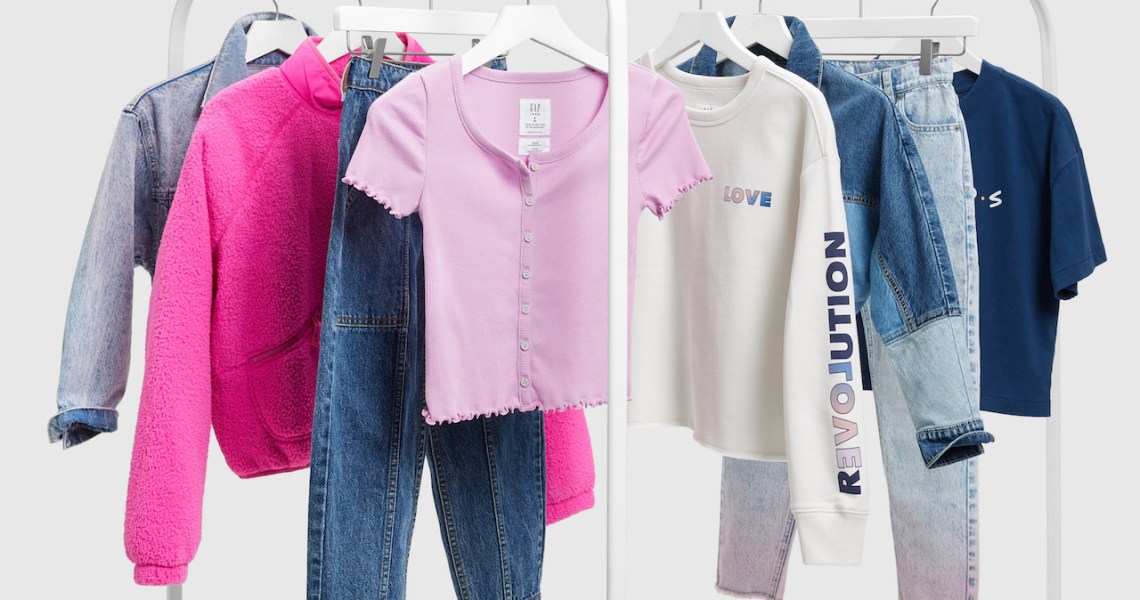The end of summer is usually the time for back-to-school shopping. While everything about this year is very different — as parents and school districts grapple with the prospects of remote learning or socially distant classrooms, and the potential of yet another lockdown — children’s apparel companies are hopeful that kids will still need new clothes.
“This back-to-school [season] is very different then anything we’ve ever seen,” said Kristen Classi-Zummo, the director of marketing insights for apparel at the NPD Group.
Back-to-school sales are an important part of the industry and account for a large percentage of children’s apparel sales in a typical year. According to the NPD Group, in the third quarter of 2019, U.S. apparel sales for 5-18 year olds reached $12 billion, up 3% from 2018. For the same age group, 30% of the apparel sales in 2019 were made in the third quarter.
S&P data shows that, based on imports of ordered products entering the U.S, kids’ apparel sales have failed to bounce back from the second-quarter slump. Compared to last year, July imports of kids’ footwear were down 44%, and apparel imports fell 29%. Meanwhile, backpack imports were down 23% in Q2, bouncing up just 5% in July. But laptop computers have seen a boost, with imports up 14% in the second quarter, followed by 6% in July.
This year, Classi-Zummo expects that some of the dollars that are usually allotted to back-to-school wardrobes were redirected to technology; many families prioritized new computers or tablets for online learning, instead of new outfits, she said.
“With parents refocusing on tech needs, apparel will suffer this year, especially without more economic stimulus and decreased unemployment checks,” Classi-Zummo said.
Of course, growing children will still need new clothes.
“Parents will [continue to] buy clothes for their kids this season, but it will be more out of necessity,” she said. “Comfort and basics will play a big role. Since the majority of children will be remote learning, they want to be comfortable.”
According to ongoing data tracking from Education Week, 17 of the 20 largest school districts in the country are planning for remote learning to be their primary back-to-school model, which will impact more than 4 million students. And many of the school districts that are reopening classrooms, such as New York City, are adopting a hybrid model of in-person and remote classes to allow for physical distancing.
Classi-Zummo expects that purchases will be spaced out over the fall as the weather changes and kids grow, rather than all at once in advance of the school year.
Marketers are adjusting accordingly. The Gap has dubbed its children’s apparel marketing push for fall as “back to learning,” rather than the usual “back to school,” to reflect the number of kids who will be learning remotely.
“We want to support kids however they are learning, whether it is [via] a Zoom room or in a physical school,” said Gap brand CMO Mary Alderete. “It’s an interesting time to be a marketer. You won’t be able to be one of the brands that can come through this unless you have a relevant mindset and stay consumer-focused.”
While many retail categories took a hit as people paused purchasing this spring, sales of children’s clothing at Gap were largely insulated from the trend.
“With … the kids and baby business at nearly $4 billion [in sales last year], Gap stays as a leader in branded children’s apparel, a staple-like category that’s largely insulated from volatility in retail,” Sonia Syngal, Gap president and CEO told investors during Gap’s earnings call in June.
Also on the earnings call, Gap told investors that the company had sold 3 million non-medical, cloth masks in May across its brands, and many of those have been bought by parents.
Indeed, masks have become a new-must have accessory for everyone, including children, as the CDC recommends that children over the age of two wear a mask when they cannot be socially distant.
Joah Love, a Los Angeles-based children’s apparel company that started in 2008, found a new market with its playground-popular soft cotton masks that have signature cotton loops rather than elastic.
“A lot of people who never heard of Joah Love found us through masks, and now we have converted them into clothing buyers,” said Ahyoung Stobar, founder of Joah Love. “Because our focus has always been about comfort, our clothes fit in with what is easy and wanted right now.”




